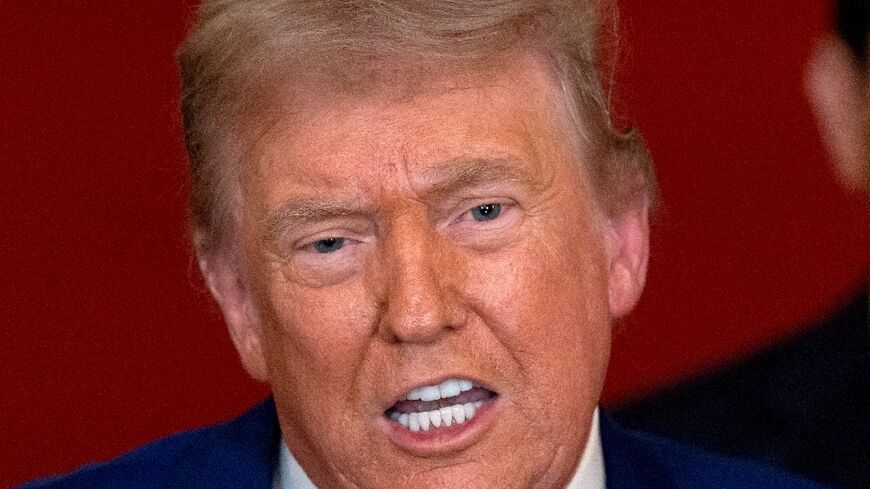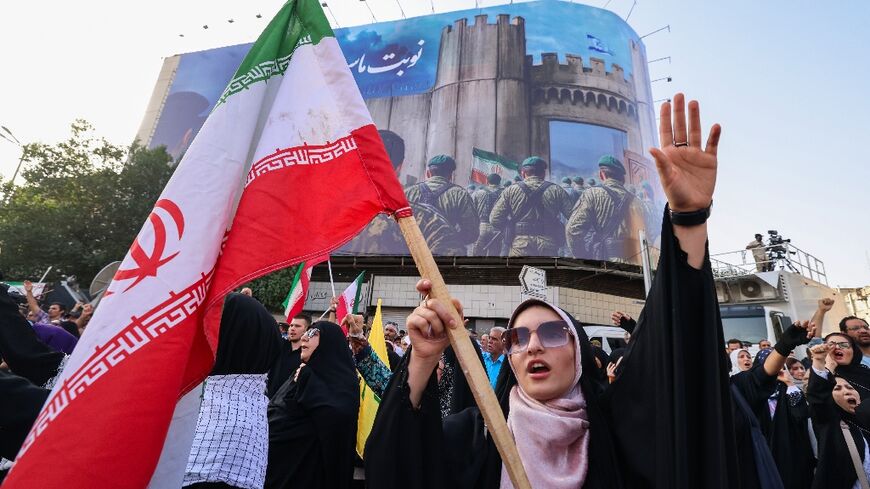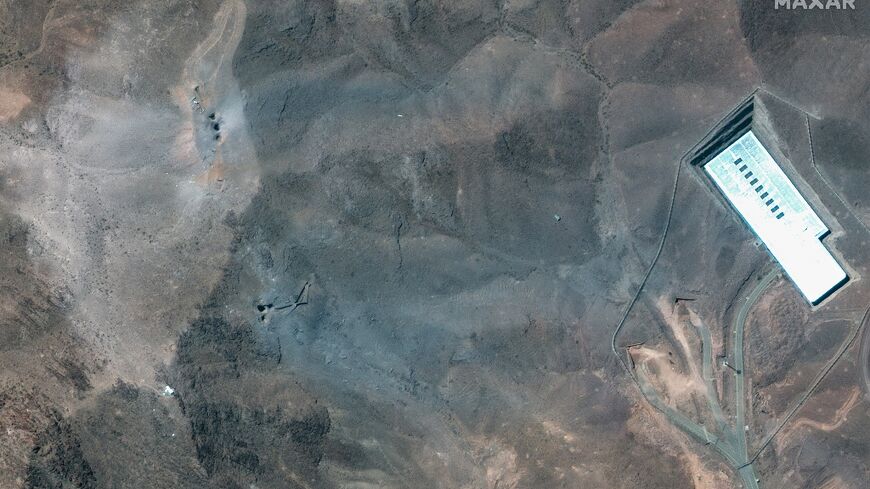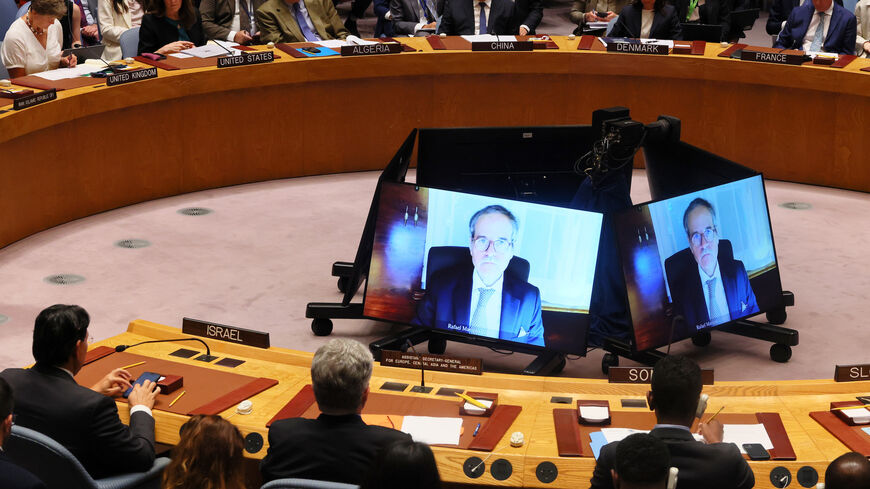Iran-Israel war: latest developments

Iran fired at a US military base in Qatar on Monday, as the war between longtime foes Israel and Iran raged after the United States sent bombers to attack the Islamic republic's nuclear sites.
Here are the latest developments:
- US base in Qatar -
Iran launched a retaliatory strike aimed at the United States' Al Udeid military base in Qatar, the largest US military facility in the Middle East.
Qatar said it had successfully intercepted the attack, which it called a "flagrant violation" of sovereignty and said it reserved the right to respond.
No casualties were reported at the base, a US official said.
US President Donald Trump dismissed the attack as "very weak."
He said Iran gave "early notice" of the strike, thanking the Islamic republic for the move that "made it possible for no lives to be lost, nobody to be injured."
"Perhaps Iran can now proceed to Peace and Harmony in the Region, and I will enthusiastically encourage Israel to do the same," he wrote on his Truth Social platform.
- IAEA cooperation -
The speaker of Iran's parliament said that Tehran is considering suspending its cooperation with the International Atomic Energy Agency (IAEA), accusing the UN's nuclear watchdog agency of lacking objectivity and professionalism.
- Iran Guards, Tehran prison -
Israel carried out "strikes of unprecedented force against regime targets and agencies of government oppression in the heart of Tehran", Defence Minister Israel Katz said as an AFP journalist heard loud blasts in the north of the Iranian capital.
Katz said the targets included the notorious Evin prison in the city's north, known to hold political prisoners and dissidents as well as foreign detainees.
Iran's judiciary confirmed Evin was struck, reporting "damage" and stressing the situation was "under control".
Israel also carried out a strike on Fordo, according to the military and Iranian media, a day after US "bunker buster" bombs hit the underground nuclear site south of Tehran.
In Israel, air raid sirens sent people to bomb shelters on Monday, with the military reporting at least three missile barrages in less than two hours.
- Iran warns United States -
Iran's armed forces chief of staff Abdolrahim Mousavi vowed on Monday that the country would take "firm action" in response to US strikes on key nuclear sites.
"This crime and desecration will not go unanswered," said Mousavi in a video statement published on state TV, adding that "we will take firm action against the American mistake".
Ali Akbar Velayati, an adviser to Iran's supreme leader Ayatollah Ali Khamenei, said bases used by US forces "in the region or elsewhere" could be attacked.
The US embassy in Bahrain -- home to a major US naval base -- reduced on-site staffing citing "heightened regional tensions".
In Qatar, home to large a US airbase, the American embassy told its citizens to "shelter in place until further notice".
Meanwhile, major international oil companies in Iraq, where the US has troops deployed and Iran backs various armed groups, had evacuated foreign staff, the state-owned Basra Oil Company said.
- 'Spillover' -
China on Monday warned against "the spillover of war", urging the international community to do more to prevent the fighting from impacting the world's economy, noting the global importance of the Gulf maritime trade routes off the Iranian coast.
Oil prices briefly fell on Monday after surging earlier, as traders weighed the possible extent of retaliation by Iran.
US Secretary of State Marco Rubio called on China to help deter Iran from closing the Strait of Hormuz, a chokepoint for one-fifth of the world's oil supply.
The European Union's foreign policy chief, Kaja Kallas, said closing the strait would be "extremely dangerous".
Russian President Vladimir Putin slammed attacks on Iran as "unprovoked" and "unjustified" in a Moscow meeting with Tehran's Foreign Minister Abbas Araghchi.
German Chancellor Friedrich Merz said of the strikes, "There is no reason to criticise what America did at the weekend. Yes, it is not without risk. But leaving things as they were was not an option either."
NATO chief Mark Rutte, meanwhile, said alliance members had "long agreed that Iran must not develop a nuclear weapon" and called an Iranian atomic bomb his "greatest fear".
French President Emmanuel Macron called for a return to negotiations. "The spiral of chaos must end. I call on all parties to exercise the utmost restraint, de-escalate and return to the negotiating table," he wrote on x.
- Nuclear stockpiles -
The UN's International Atomic Energy Agency demanded Monday the return of inspectors to Iran's nuclear sites in a bid to "account for" its highly enriched uranium stockpiles.
"Allow IAEA inspectors to go back to Iran's nuclear sites and account for the stockpiles of uranium" including the "400 kilograms enriched to 60 percent", said agency chief Rafael Grossi.
At an emergency meeting of the organisation's headquarters in Vienna, he said Tehran had sent him a letter on June 13 announcing the implementation of "special measures to protect nuclear equipment and materials".
burs-dcp/yad/gv



